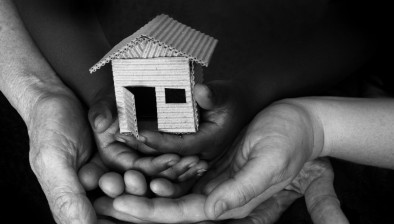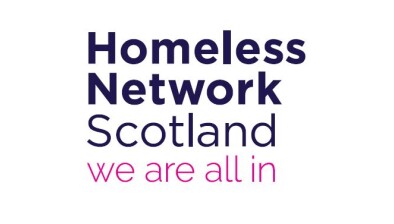More than 8,000 Scottish workers ’could be homeless at Christmas’

New research by The Salvation Army has estimated that as many as 8,000 working people in Scotland will be homeless this Christmas.
By analysing the latest government figures in the four UK nations, the church and charity found that 56,242 workers in the UK were registered as homeless from April 2023 to March 2024, with 32,138 of them in full-time employment and 24,104 working part-time.
The Salvation Army estimates that this could be equivalent to more than 8,000 in Scotland although the Scottish Government does not collect data on employment status. People working full-time or part-time make up nearly a quarter of everyone registered as homeless in the UK during this period, it added.
The Salvation Army’s assistant director of homelessness services (Scotland), Helen Murdoch, said: “The person delivering your Christmas shopping, making your gingerbread latte, cleaning up after your office party or providing care and support may not have a proper home. It is wrong that hard-working people can’t afford a place to live.
“Our findings shatter the assumption that all anyone who is homeless needs to do is just get a job. Private sector rents have increased almost 16 per cent since 2020 and rising mortgage rates combined with the high cost of living, mean a wage doesn’t guarantee a home.
“The Scottish Government has responsibility for homelessness prevention, but most social security payments are not devolved. With homelessness continuing to rise, the UK Government’s decision to freeze the Local Housing Allowance is a huge financial blow to people on low incomes here in Scotland who are already struggling to keep a roof over their heads.
“The Salvation Army has helped working people of all ages who were sleeping rough or sofa-surfing while trying to hold down a job. We will continue to do all we can to support the most vulnerable, including those people who have no place to call home this Christmas.”
The Salvation Army, whose support for vulnerable people includes homelessness services, food banks and debt advice, is calling for the UK and Scottish Governments to help people on low wages afford somewhere to live.
The UK Government is being asked to unfreeze Local Housing Allowance (LHA) benefit in line with inflation. The LHA is designed to ensure that housing benefit covers the cheapest third of privately rented properties in a given area. As rents rise but the LHA top-up remains the same even the cheapest privately rented properties become unaffordable which pushes people into homelessness.
To provide accurate data on people who are sleeping outdoors, the Scottish Government has also been urged to support a similar recording system of the rough sleeping population as CHAIN in London (CHAIN - Combined Homelessness and Information Network statistics) in cities and regions with high levels of rough sleeping.
Gordon spent five months living in a tent while doing a bar staff job. He had to rely on The Salvation Army to shower, wash his clothes and to get food.
Gordon said: “There is a big misconception that people who are sleeping rough are unemployed - this isn’t always true. I was working, earning a living, but I just couldn’t save the money to get a place. Living in a tent you feel worthless. I kept myself hidden. I’d get up for work and go to do my shift, leaving everything in my tent. I’ve worked all my life, and I was still working but didn’t have anywhere to go. It was tough to accept.
“Working with the public it was important to dress the part and be well presented. I couldn’t let anyone know where I was living so I would go to The Salvation Army to wash and they gave me toiletries to use and towels and a hot breakfast, so I was ready for my working day, and no one would have guessed where I had slept.
“Living in a tent in a park you don’t have cooking facilities so takeaways every night soon racks the costs up. I worked in hospitality. I was sometimes able to get fed at work, but on the days that I wasn’t working it was tough. I would also accept lifts home from work but get my colleagues to drop me off on the main road near where I used to live so they thought I was going back there. When they had driven off, I would walk to the park and back to my tent.”







